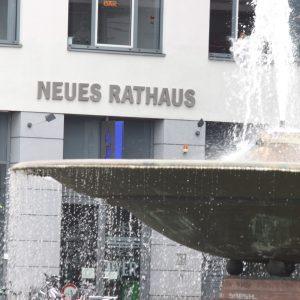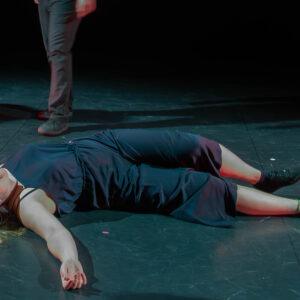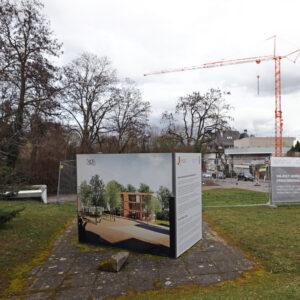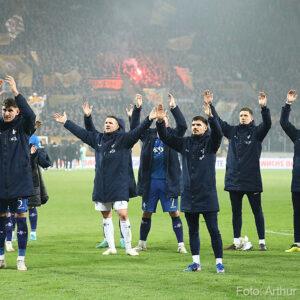ADVERTISING
When even the church bells are silent
By W. Christian Schmitt

Between 1950 and 1975, the legendary "Darmstadt Talks" event series took place. In short, its aim was to bring culturally interested citizens closer to relevant topics and issues through public discussions. This is also the goal of the "Darmstadt Table Talks," where those who contribute to the preservation and further development of our society in various capacities have their say. This time, journalist and publicist W. Christian Schmitt, along with cameraman Werner Wabnitz, are guests of Julian Söller, cultural manager of the Darmstadt City Church parish.
If Martin Luther, the Bible translator, were alive today, he would surely have long since become a member of the German Academy for Language and Literature – and a (further) example of how closely intertwined church and culture are. And that was precisely the topic of our initial discussion at our table in Darmstadt's oldest church in the city center: What connects the church with art and culture? Over the centuries, a great deal. Just consider how many works of art have been preserved in (Catholic) churches, for example. Paintings, sculptures, and so on, which were once commissioned by bishops, cardinals, or even popes, or which, alongside princes and kings, were among the main patrons.
But that wasn't all we talked about with Julian Söller, who first wanted to show and explain the interior of the city church to us: the altar, the wainscoting behind it, and also the trapdoor in the floor that—when opened—leads down to the crypt. But that would be something for a later visit. Then, in a church where the pastors usually hold sway and preach, the cultural manager, who is actually an environmental engineer, told us how he came to this job as a relative newcomer and what his responsibilities encompass. It all started during his university studies. There, under the umbrella of the student union (where he was the representative for social affairs and housing), he first came into contact with "those who organize events," including demonstrations and readings. Then he "founded an artists' collective with friends in Darmstadt"—but the "longer story" would be too much to tell here. And at some point, he made contact with the city church and with the cultural pastor, Karsten Gollnow. For many years, he was the go-to person for all things church and culture, from author readings and concerts to exhibitions, jazz sessions, and the like. The church had granted him a half-time position for this. Since the beginning of 2024, Julian Söller has filled that position. The church, he explains, "used to be a place of community." And that's precisely where his commitment to fostering "shared experiences" begins. He also wants to "create a range of social offerings that covers as many areas as possible.".
We talk about cultural funding, about fees to be paid to performing artists, about coordination with municipal and other cultural providers in the city – and, of course, about how he has settled into Darmstadt's cultural scene. "Right at the beginning," he recounts, "I was invited to an 'artists' get-together' at the Bessunger Knabenschule." Later, he made contact with the SPD's "Cultural Forum," and the Greens also showed a willingness to talk. And what about the CDU? "Nobody approached me," he remarks.
"What scope for action do you have?" I ask. "With whom do you have to coordinate when developing your own cultural program?" "You never have completely free rein," he replies. But he has "the confidence that my events will treat the venue, meaning the city church congregation, with respect." Although—as current leading politicians demonstrate—"respectful" can be defined very differently. "I'm employed by the Darmstadt deanery," he adds, "but I work in the city church congregation, I'm in contact with the church council and Pastor Gollnow, as well as Annette Laakmann, the deanery president." And what's his interim assessment? "Mostly positive. I feel completely at home in this cultural city.".
When we then ask him about his hobbies, he, who also once tried his hand at being a drummer, tells us the following: "I am a very passionate museum-goer and am particularly interested in design, art and architecture.".
Before we say our goodbyes, I'd like to return to an offer Julian Söller made to us before we recorded our discussion: "If it bothers you that the church bells start ringing in the middle of our conversation, I can turn them off." But that wasn't necessary. Our dialogue ended just in time, shortly before the bells started ringing.
About
Julian Söller, born in 1995; cultural manager of the city church parish; from 2020 to 2024 Darmstadt University of Applied Sciences (Master of Engineering); 1st Chairman of the Board of the cultural association prima (2023/24).
Our next interviewee is Judith Kautz, owner of the Bessungen bookstore.











